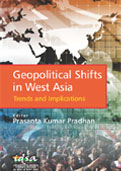The Oil Market Challenge
Over the last few years, it has been a roller coaster ride for the oil markets. From $110 a barrel in 2010, prices began dropping from June 2014 and finally dropped to below $30 a barrel in January 2016. Then from the end of the first quarter of 2016, prices started recovering and have been hovering around $50 a barrel since May
- Shebonti Ray Dadwal
- September 2016










